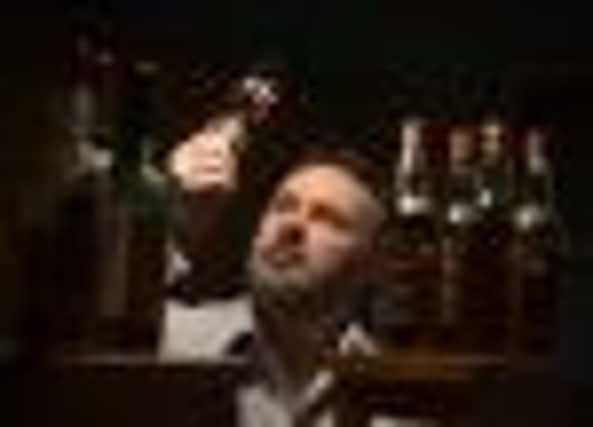Investment fund aims to raise £4m for rare whisky


Robertson, co-founder of the Whisky Trading Company, is appealing to “sophisticated” private investors with a taste for Scotland’s national drink.
The cash raised will be used to buy thousands of bottles of rare and collectable whisky to be sold in the future at a profit.
Advertisement
Hide AdAdvertisement
Hide AdPrices for high-end whiskies have been driven in recent years by demand from collectors in established and emerging markets around the world.
According to Whisky Highland, the valuation service that tracks auction selling prices, an investment in the top-ten performing whiskies in 2008 would have generated a return of 508 per cent by the close of last year. Returns from the top 100 would have been 306 per cent, but the bottom ten accumulated losses of 71 per cent.
Robertson has used his experience and industry contacts to identify and source what he believes will be the most sought-after whiskies of the future.
He set up the Whisky Trading Company with Lindon Neil, a former investment banker at RBS and Wachovia Bank. After raising an initial £450,000, the company has secured options on 3,000 bottles, some of which pre-date the Second World War.
“Scotch whisky, and particularly high-end single malt whisky, is held in huge esteem around the world,” Robertson said. “The market is tight, and demand has continued to increase, so prices have been very firm.”
The son of a distiller from Royal Brackla at Nairn, in the Highlands, Robertson earned a brewing and distilling degree from Heriot-Watt before starting his first job with Guinness, working across the group’s 32 Scottish distilleries.
He joined Macallan in 1994, where he was distillery manager for seven years before moving into international sales. He then joined Whyte & Mackay in 2006.
It was there, as director of rare whisky, that Robertson organised the 2010 release of what was then the world’s most expensive Scotch. Three bottles of Dalmore Trinitas 64 each fetched £100,000, with two going to private buyers and the other sold to Harrods.
Advertisement
Hide AdAdvertisement
Hide Ad“That would have been unbelievable a few years earlier, but that just shows you where the market is headed,” Robertson said.
The Whisky Trading Company has been set up under the UK government’s Enterprise Investment Scheme, which offers tax breaks to smaller high-risk companies and their investors. Its minimum contribution of £10,000 is, therefore, geared towards wealthier UK tax residents.
Robertson and Neil believe they can combine the benefits of tax breaks with rising interest in collectable whiskies. About 14,000 bottles were sold at auction last year – up from just 2,000 four years earlier – and that number is projected to rise to 30,000 by 2020.
Malts from iconic brands such as The Dalmore and Glenfiddich are particularly sought-after in this increasingly active market, as are those from so-called “silent stills” which are no longer in production. Limited editions, such as the 2,012 bottles of Macallan released to celebrate the Queen’s Diamond Jubilee, are also popular.
Demand for rare drams is being driven from emerging economies such as China and Russia, while interest remains strong in established markets such as the United States.
“If anything, prices have hardened rather than softened,” Robertson said. “People who want these trophy malts are prepared to pay top money for them.”